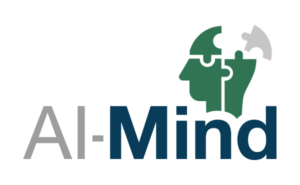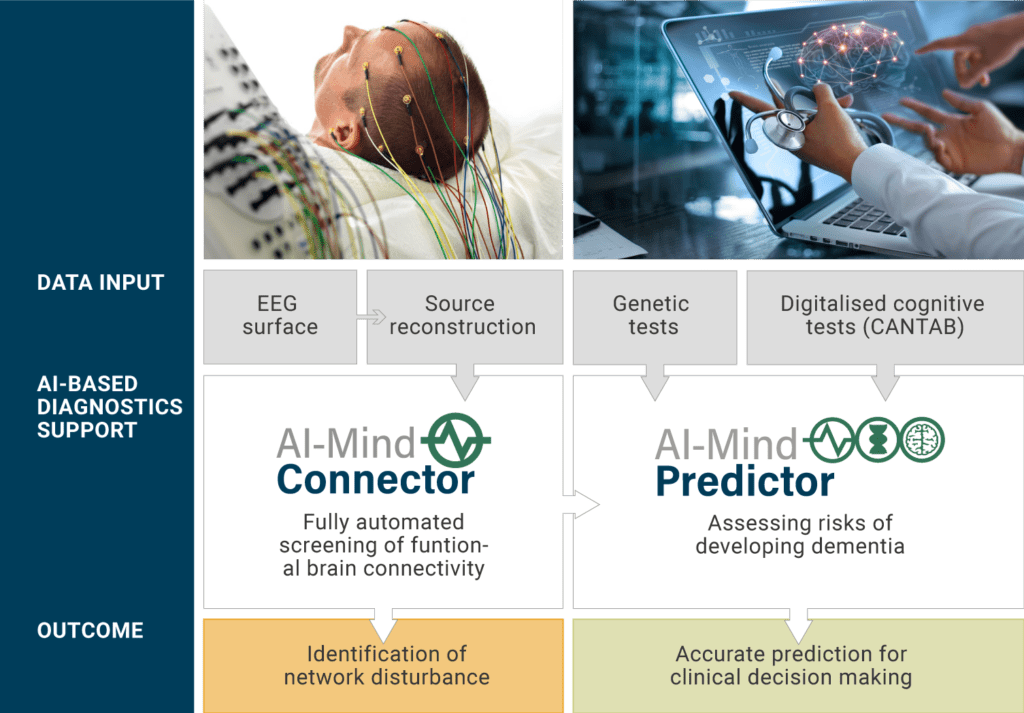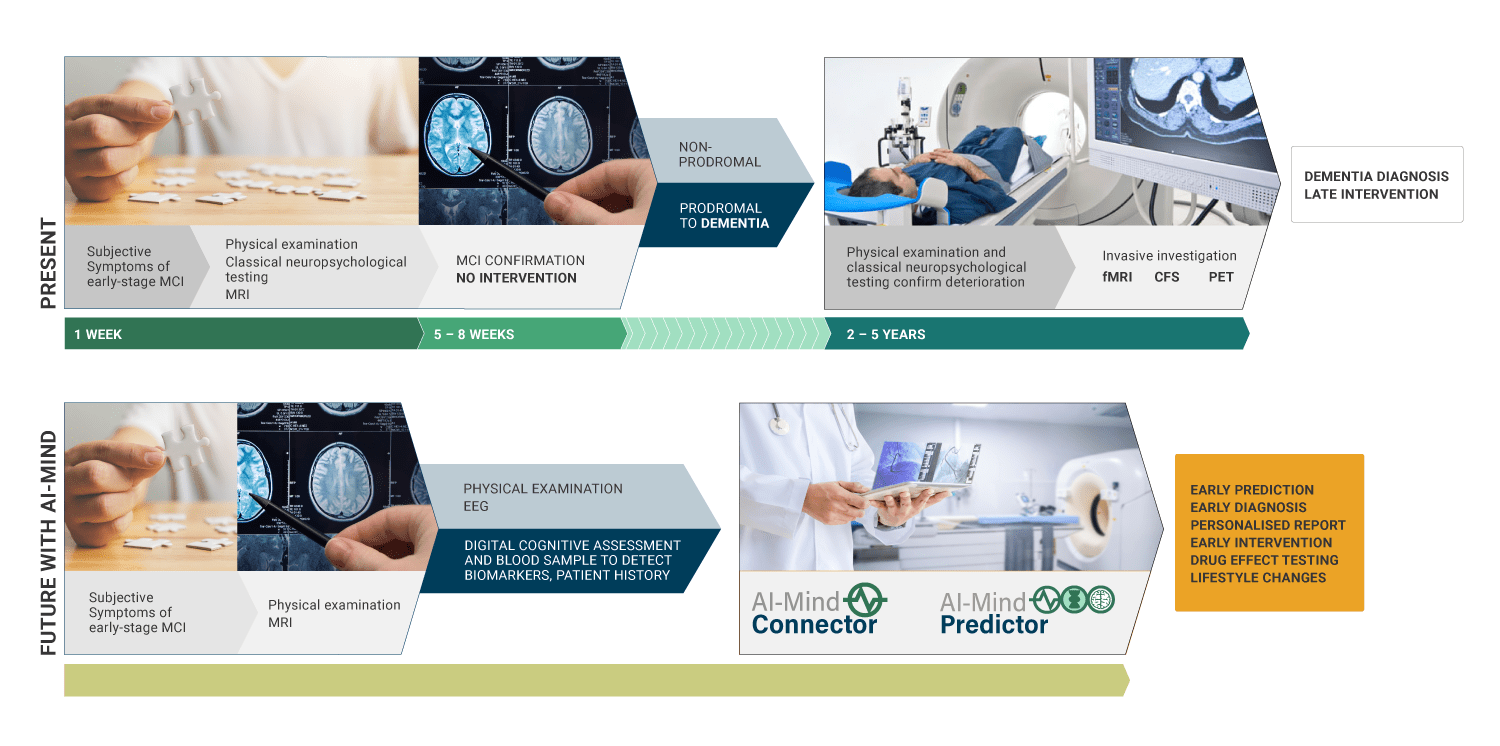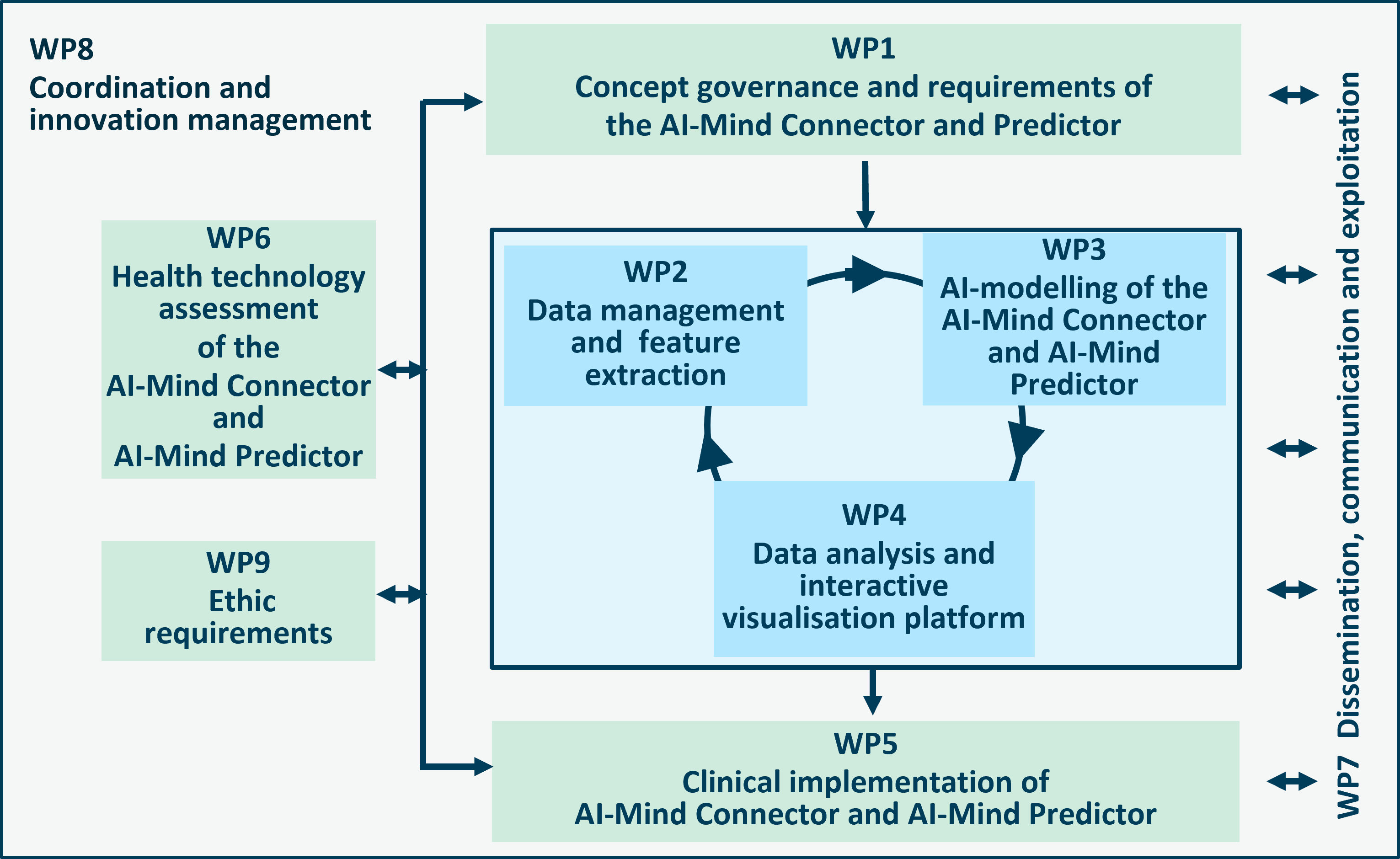What is our project about?
The AI-Mind project aims to ease the burden of dementia by creating innovative, AI-driven tools that assist healthcare professionals in predicting dementia risks in patients affected by mild cognitive impairment (MCI). Most dementia treatments focus on managing symptoms once they appear, leaving little room for early prevention. AI-Mind seeks to transform this process by replacing complex and inefficient screening methods with advanced, automated tools powered by AI. These tools will address the critical need for early and precise diagnosis, allowing doctors to identify patients at high risk of developing dementia with greater confidence.
Watch video to learn more from our project coordinator.
AI-Mind concept
At the heart of AI-Mind are two AI-based digital tools that will be integrated into a cloud-based diagnostic support platform. These two tools will process routinely collected data in an innovative way.
The AI-Mind Connector, which is fed with brain images from electroencephalography (EEG) data, will evaluate and visualise interactions between different brain areas, identifying early disturbances in the functional brain network. AI-Mind reads these disturbances as the first signs of cognitive changes that may develop into dementia in the future.
The AI-Mind Predictor, which makes use of AI to combine data from the Connector, cognitive tests and blood analysis, will provide an accurate (>95%) prediction of dementia risk for clinical decision-making.
Both tools will be integrated into a cloud-based diagnostic platform, providing an easy-to-implement service for health professionals.
AI-Mind enables preventative therapies
With the currently available technology, many patients receive their diagnosis only after the onset of dementia. As a consequence, there might not be the opportunity to start preventive therapies. For people with MCI, the dementia risk is almost 30% higher than unaffected individuals. Therefore, we need effective diagnostic tools for early dementia risk assessment and intervention for people with MCI.
Our ambition
The dementia patient journey at the moment involves several clinical visits, which finally result in a diagnosis of dementia two to five years after initial symptoms.
AI-Mind will shorten the time to diagnosis to a week and allow for diagnosis at the MCI stage when there are no severe structural cerebral defects and intervention is still possible. AI-Mind will extend the ‘dementia-free’ period among MCI-patients who are prodromal to dementia by offering diagnosis and early intervention.
Framework
The AI-Mind project is structured into nine integrated work packages (WPs), each focusing on different stages and aspects of developing AI-based tools for dementia prediction:
- WP1 assesses legal and clinical guidelines for the effective implementation of AI tools within the healthcare landscape.
- WP2 focuses on collecting and processing data for AI analysis and establishing the AI-Mind database with quality standards.
- WP3 develops AI algorithms for the AI-Mind Connector and Predictor, ensuring accuracy, explainability, and trustworthiness.
- WP4 creates interactive visualisation tools for clinicians to explore AI-identified patterns and insights from the AI-Mind Connector and Predictor.
- WP5 conducts clinical studies with 1,000 participants to validate the AI-Mind tools.
- WP6 focuses on health technology assessment, evaluating AI-Mind tools early in development.
- WP7 ensures wide outreach through cross-media communication, stakeholder-oriented dissemination, and exploitation of project results for long-lasting impact.
- WP8 supports the smooth implementation of the project, including progress tracking and reporting.
- WP9 ensures adherence to ethical standards.
AI-Mind is an European project receiving funding from the European Union’s Horizon 2020 research and innovation programme under grant agreement No 964220. It is a five-year Research and Innovation Action (RIA) that officially starts in March 2021. It involves fifteen project partners from eight European countries and has a budget around 14 million euro.
Horizon 2020 is the financial instrument implementing the Innovation Union, a Europe 2020 flagship initiative aimed at securing Europe’s global competitiveness. This programme is followed by Horizon Europe, the new EU research and innovation programme for 2021-2027.
The AI-Mind project addresses the Horizon 2020 Call H2020-SC1-BHC-06-2020, ‘Digital diagnostics – developing tools for supporting clinical decisions by integrating various diagnostic data,’ by developing a decision support diagnostics platform for early risk estimation of dementia through two BSOA AI-based tools using SOA data.



